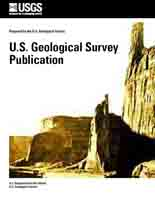The computation of hydrodynamic flow in two dimensions is implemented in the Surface-Water Integrated Flow and Transport in Two-Dimensions (SWIFT2D) model using a numerical code that also includes computation of reactive constituent transport, density variation effects, drying and wetting of periodically inundated areas, and hydraulic structures. The model can be utilized in a variety of settings where velocity and concentration gradients can be assumed to have minimal vertical variations, and the representation of flow in two horizontal dimensions is sufficient. The finite-difference forms of the equations of mass continuity and momentum are solved in two dimensions by the use of a staggered timestep solution solved with an efficient alternating-direction implicit solution. The finite-difference forms of the constituent transport equations can be solved in conjunction with the flow equations. If salt transport is simulated, an equation of state relates the density terms in the momentum equation to salinity.
The traditional formulation of SWIFT2D has been applied to numerous estuaries, bays, and harbors throughout the world. Modifications have been made to expand SWIFT2D for applicability to shallow coastal wetlands. These modifications include the representation of spatially and temporally varying rainfall and evapotranspiration, wind sheltering owing to effects of emergent vegetation, and changes in frictional resistance with depth. These modifications expand the versatility of the code?s applications to include open freshwater or saltwater conditions along coasts and within embayments and estuaries as well as associated fresh, brackish, and hypersaline wetlands and marshes linked to such water bodies. Inclusion of precipitation and evapotranspiration processes also permits long-term simulations.


